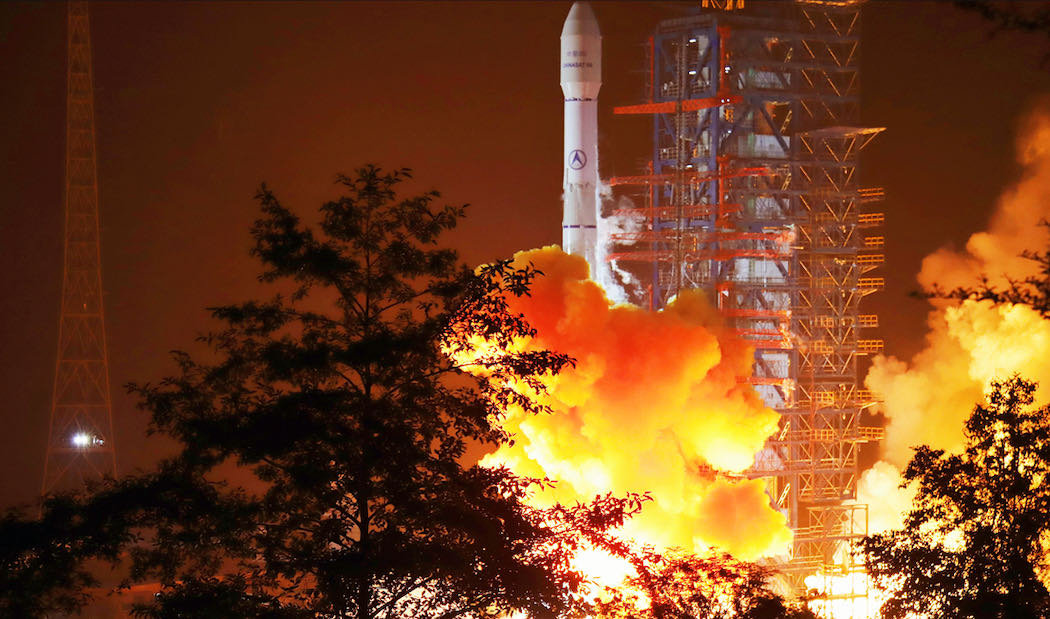
A replacement Chinese communications satellite for a craft launched into the wrong orbit four years ago successfully rocketed into space Thursday, just in time to be ready to support 4K and 8K television broadcasts of the Beijing Winter Olympics next year.
The Chinasat 9B communications satellite, also known as Zhongxing 9B, lifted off on top of a Long March 3B rocket at 7:50 a.m. EDT (1150 GMT) Thursday, according to the China Aerospace Science and Technology Corp., or CASC, the lead state-run enterprise in charge of the Chinese space program.
The three-stage Long March 3B rocket arced downrange from the Xichang launch base in southwestern China’s Sichuan province, dropping its four liquid-fueled boosters and first stage over Chinese territory. A second stage and a reignitable cryogenic third stage completed the task of placing the Chinasat 9B spacecraft into an elliptical geostationary transfer orbit.
U.S. military tracking data indicated the satellite deployed in an elongated orbit ranging between 128 miles and 22,240 miles (206 and 35,792 kilometers), with an inclination of approximately 24.6 degrees to the equator.
Chinasat 9B, with a launch mass of around 5.5 metric tons (12,000 pounds), unfurled its power-generating solar arrays shortly after separating from the Long March 3B’s third stage, according to CASC.
The satellite, to be operated by China Satcom, is expected to use its own thrusters to reach a circular geostationary orbit more than 22,000 miles over the equator, where it will enter service over the Asia-Pacific region.
Built on the DFH-4E satellite bus developed by the China Academy of Space Technology, Chinasat 9B is designed to relay live television broadcasts, according to CASC. The satellite can support 4K and 8K high-definition video transmissions of large events such as the Winter Olympics to be hosted by Beijing in February.
Chinasat 9B’s predecessor, Chinasat 9A, deployed into a lower-than-planned orbit in June 2017 after a malfunction on the third stage of its Long March 3B rocket. The satellite most of its propellant to overcome the shortfall, cutting into its planned service life. Chinese officials retired Chinasat 9A earlier this year.
Email the author.
Follow Stephen Clark on Twitter: @StephenClark1.
